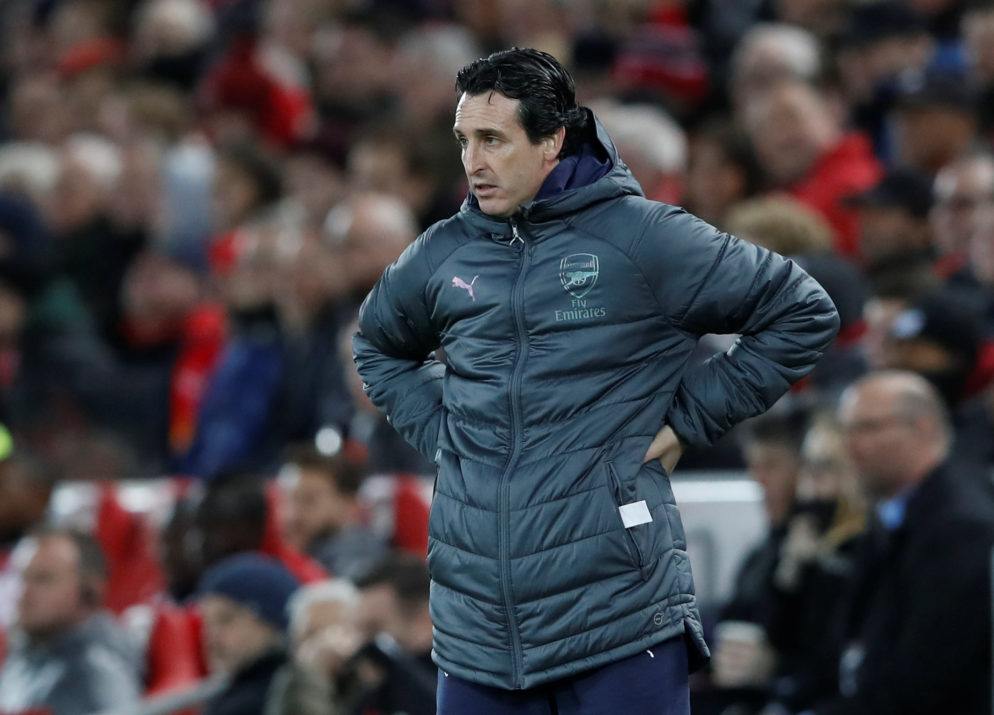Seven games without a win, Arsenal’s longest run since 1992, was enough to end Unai Emery’s 18-month tenure at the Emirates. His second season at the club saw him win just four out of 13 league games, by which time it became hard to see a way forward for the club while he remained manager.
The Spaniard faced many challenges as Arsene Wenger’s successor and, while it was clear that he failed in many respects, it would be untrue to say that there were no positives.
Attack
Upon Emery’s arrival last summer it was notable that the club made no reinforcements in attack. £100m had been spent in the previous season to secure the services of Alexandre Lacazette and Pierre-Emerick Aubameyang, and it was upon these two that the club depended. Emery initially found a system in which both flourished and Lacazette was voted the club’s 2018/19 player of the season, while Aubameyang became one of the most prolific strikers in Arsenal history.
Their support, however, was lacking. Alexis Sanchez had been replaced by an out of form and Henrikh Mkhitaryan. Santi Cazorla and Jack Wilshere were not offered new deals.
Nicolas Pepe joined a year later, but this only served to disrupt Lacazette and Aubameyang’s partnership. Meanwhile, the decision to allow Aaron Ramsey, the highest-scoring midfielder in the club’s history, to leave in the summer seems more confusing with each passing week. Loan signing Dani Ceballos has been unable to replicate his attacking runs or emphatic finishing.
And then there’s Mesut Ozil. In recent weeks fans have been calling for the German to be a guaranteed starter, claiming that Emery held an agenda against him. Such fans have short memories. Ozil played a peripheral role in Wenger’s final months, especially on the road, leading to many supporters expressing desire for him to be sold. Furthermore, last season’s biggest league wins over Tottenham, Chelsea and Manchester United all came without his involvement. Arsenal’s recent problems in attack have led to Ozil’s reintegration, but this issue has been at the Emirates long before Emery.
Defence
Under Emery, the Gunners conceded 70 league goals in 51 league games, more than any other “big six” side in England. They regularly face more shots on goal than they themselves manage to have, and the current rearguard seems nervous and incompetent.
Injuries to Hector Bellerin and Rob Holding have not helped Emery, whilst Laurent Koscielny and Nacho Monreal were moved on. The former PSG boss also lost Per Mertesacker and Petr Cech to retirement, meaning a new backline was built. David Luiz, Sokratis Papastathopoulos, Bernd Leno, Kieran Tierney and Stephan Lichtsteiner were bought in by the Spaniard, with the majority failing.
Individual errors from a raft of experienced players have proved his side’s undoing on numerous occasions. It seems Emery could not implement the organisation or confidence that was desperately needed.
Youth
Arsenal hold a proud tradition of developing young players, and any manager was always going to have to follow suit. Emery understood this and embraced it. Last season academy products Joe Willock and Emile Smith-Rowe made first-team breakthroughs, while Eddie Nketiah netted his first Premier League goal. At 18, Bukayo Saka has started four of Arsenal’s league games this season while another 18-year-old, summer signing Gabriel Martinelli, has become a crowd favourite. Emery nurtured and showed faith in this group.
What next?
Whoever replaces Emery will not be given an easy job. Restoring discipline in defence and arrogance in attack will be important. Emery’s work, though, means that there are tools to work with.
His successor must also be able to handle the pressure. Make no mistake, Arsenal is not an easy club to work at. In fact, given the club’s international appeal, Emery has arguably been under more scrutiny than any manager in the world bar Ole Gunnar Solskjaer.
Faced with this, Emery only acted with dignity and recognised the need to form a bond with the fans. Sadly, he ultimately couldn’t manage either.

